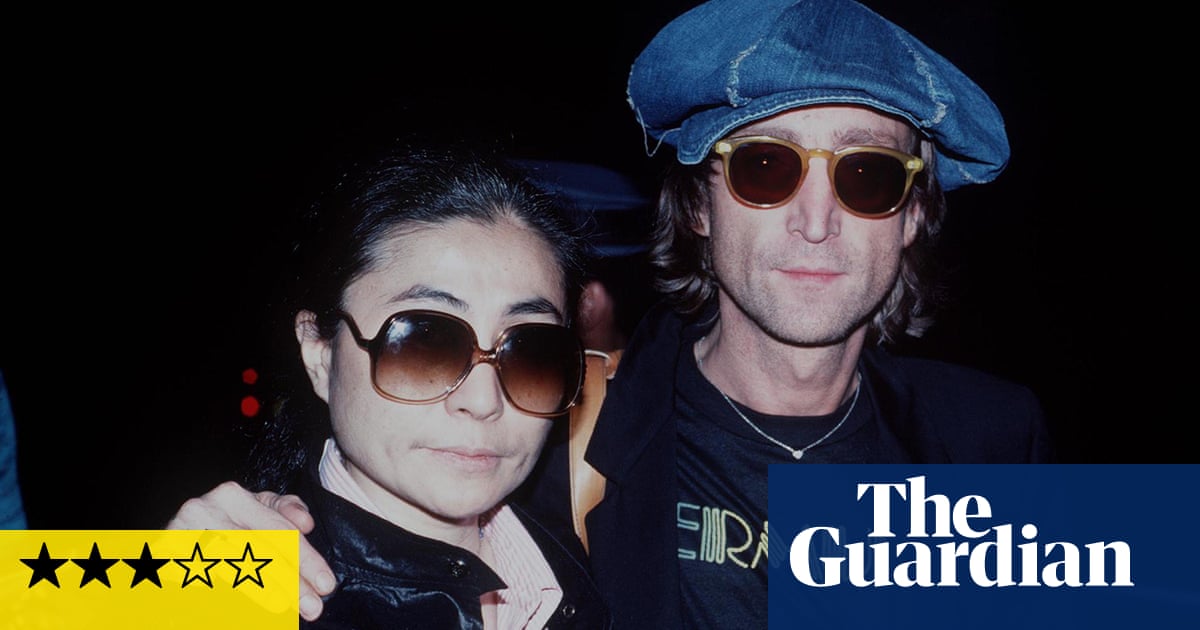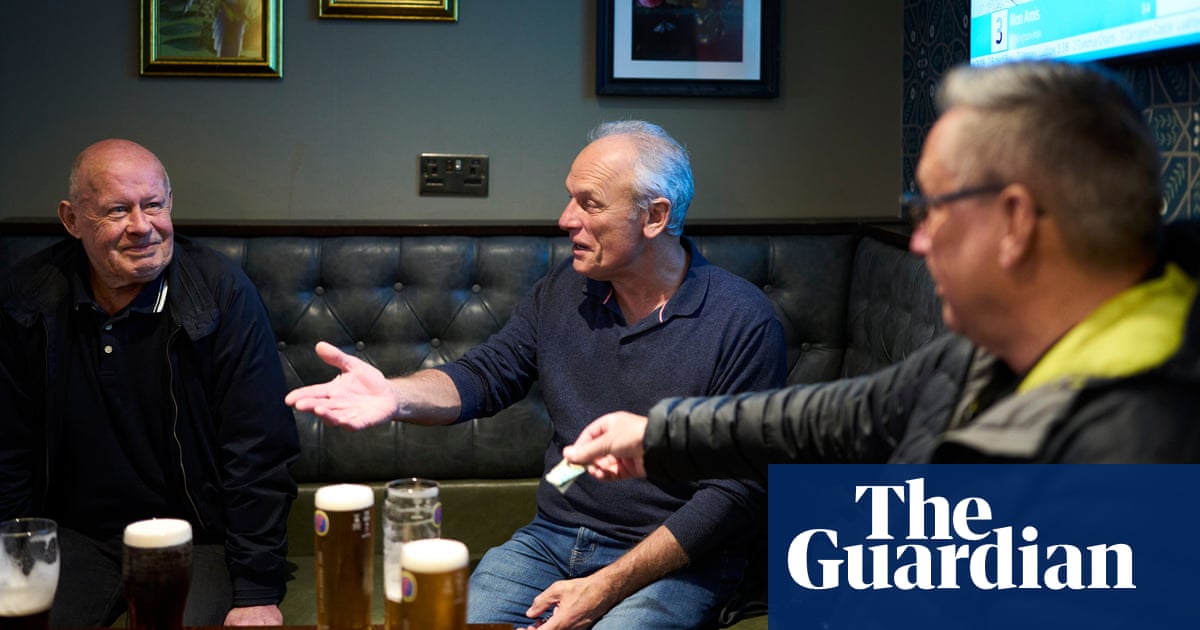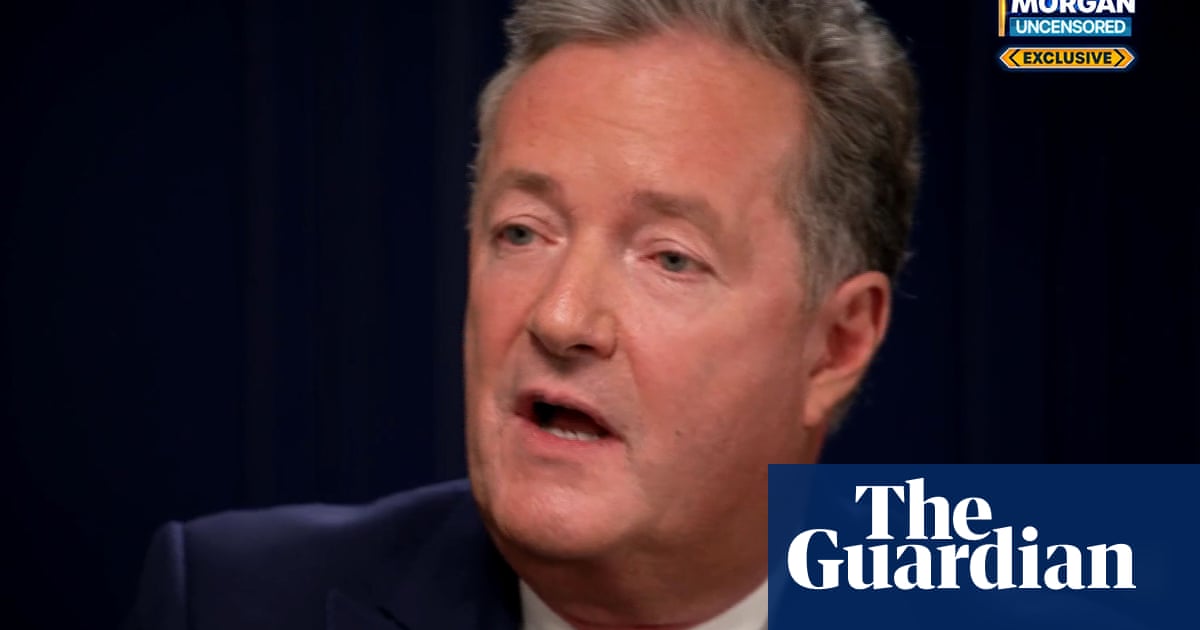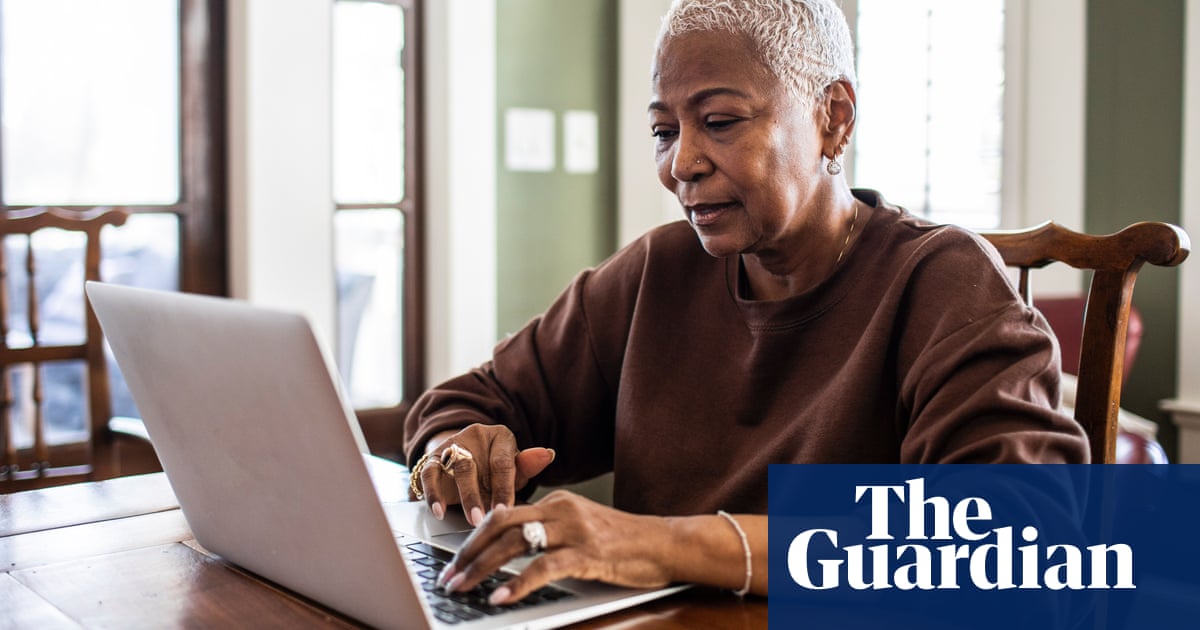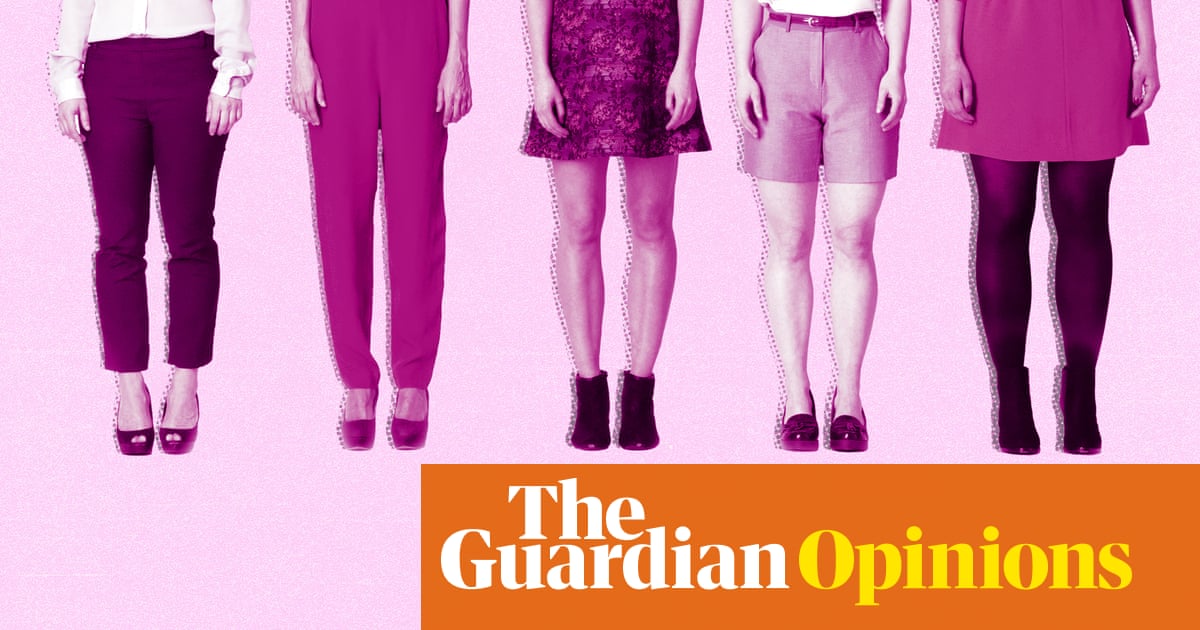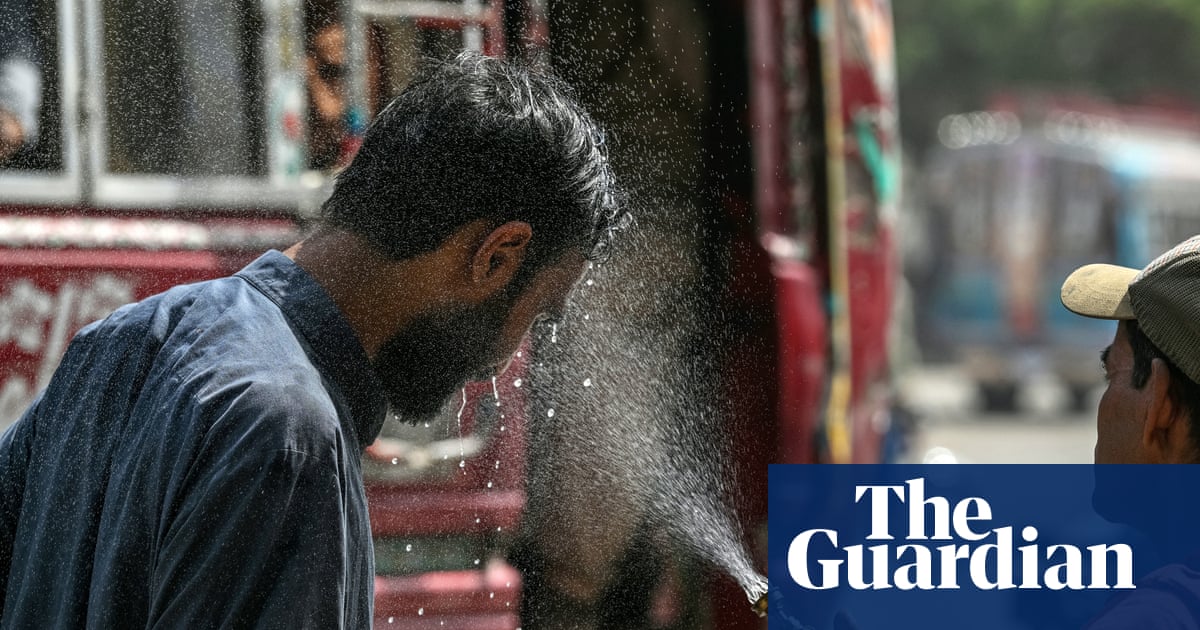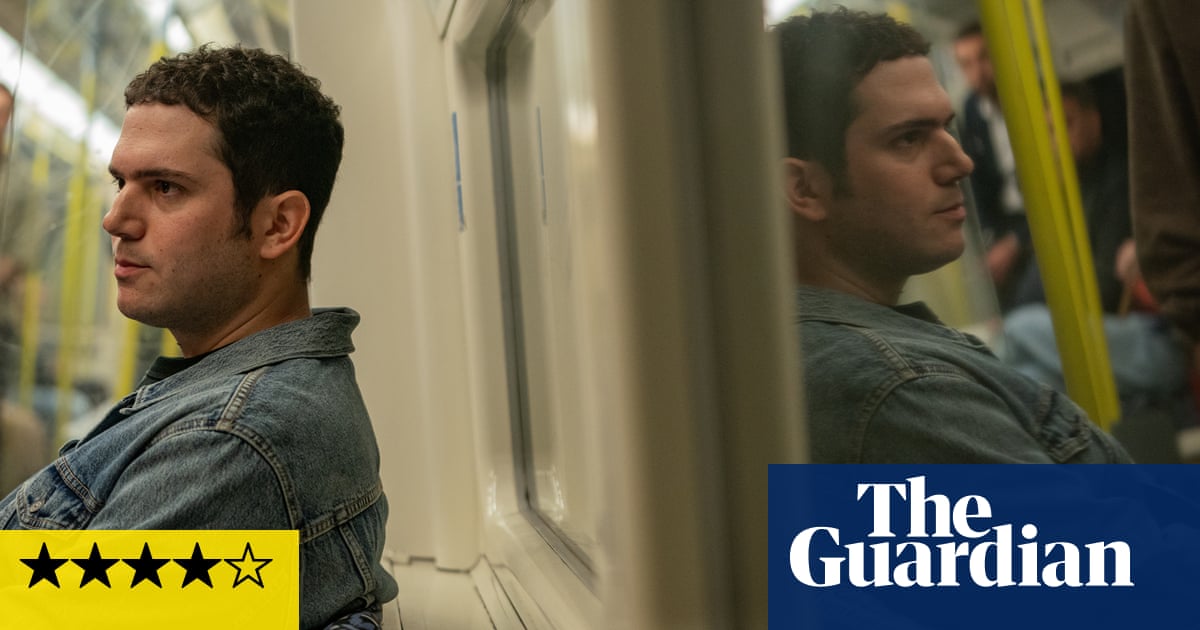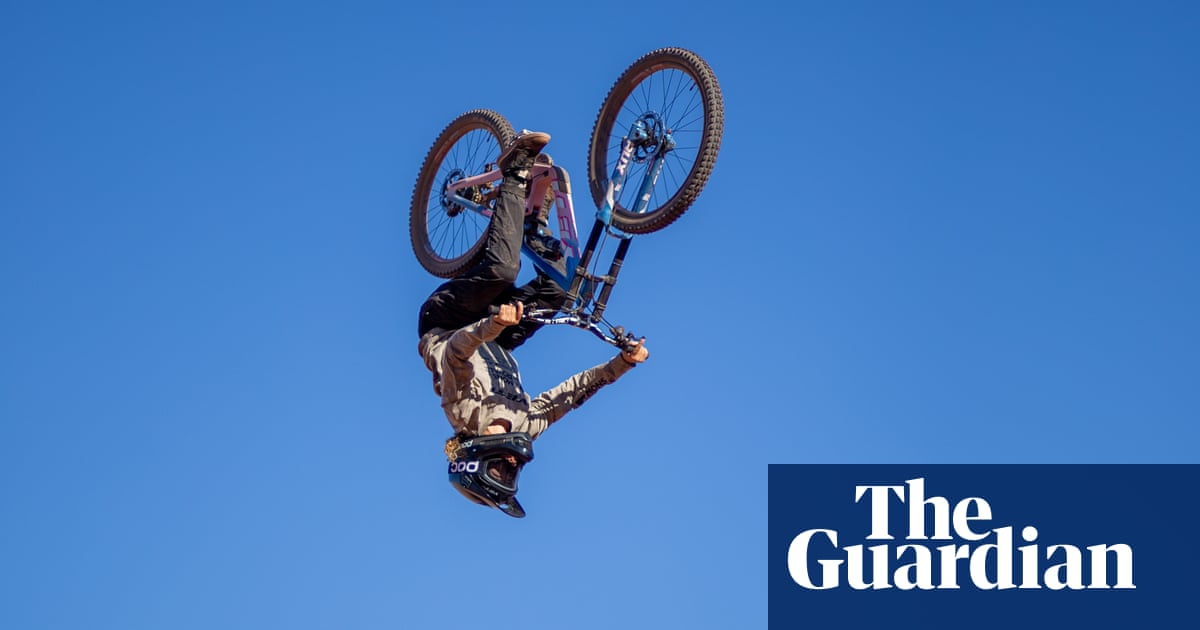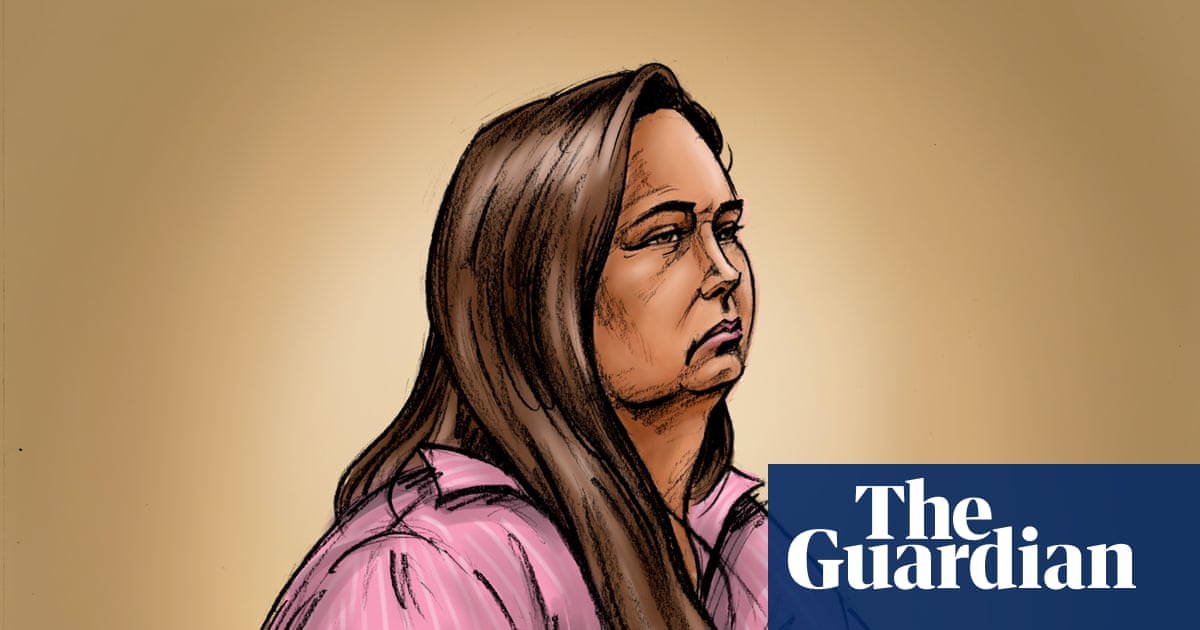Jess Davies was a 15-year-old schoolgirl, sitting in an art lesson, absorbed in her fairytale project about a princess and a postman, when her Nokia phone began to vibrate with messages. “Nice pictures,” read one. “I didn’t think you were that type of girl,” said another.
To this day, she remembers the racing thoughts, the instant nausea, the hairs prickling up on her legs, the sweaty palms. She had shared a photograph of herself in her underwear with a boy she trusted and, very soon, it had been sent around the school and across her small home town, Aberystwyth, Wales. She became a local celebrity for all the wrong reasons. Younger kids would approach her laughing and ask for a hug. Members of the men’s football team saw it – and one showed someone who knew Davies’s nan, so that’s how her family found out.
Only now can Davies, the 32-year-old presenter, influencer and women’s rights campaigner, see all this for what it was. It happened in the early 00s, when she was a girl – she still loved High School Musical and Hannah Montana – with a woman’s body, navigating new feelings and the male gaze. “I had boobs when I was 10 so from then on, there were comments. You quickly learn that this is the lens you’re seen through. This is who you are now.” The boy who betrayed her trust, the men in the football team, everyone who shared that picture faced no scrutiny. “I was the one shamed,” she says, “I was the first person I knew of that this had happened to, so there was no blueprint to follow. I was mortified. My response was: ‘OK, this is it. I have to try to own this as it’s not going away.’” She chose to laugh it off and front it out. By 18, while at university, she was working as a glamour model for lads’ mags. “It’s wild how one thing can change your life trajectory,” she says. “Without that image going round my school, would I have ever felt confident to go on a modelling shoot? There was already so much stigma attached to me, I thought: ‘Why not try to embrace it and be confident in my body?’” She’s quiet for a moment. “I think that’s been a plus and a negative.”
Her book, No One Wants to See Your D*ck, takes a deep dive into the negatives. It covers Davies’s experiences in the digital world – that includes cyberflashing such as all those unsolicited dick pics – as well as the widespread use of her images on pornography sites, escort services, dating apps, sex chats (“Ready for Rape? Role play now!” with her picture alongside it). However, the book also shines a light on the dark online men’s spaces, what they’re saying, the “games” they’re playing. “I wanted to show the reality of what men are doing,” says Davies. “People will say: ‘It’s not all men’ and no, it isn’t, but it also isn’t a small number of weirdos on the dark web in their mum’s basements. These are forums with millions of members on mainstream sites such as Reddit, Discord and 4chan. These are men writing about their wives, their mums, their mate’s daughter, exchanging images, sharing women’s names, socials and contact details, and no one – not one man – is calling them out. They’re patting each other on the back.”
It has taken years for Davies to shift the blame away from herself and on to them. For most of her adult life, she says, she carried shame and stigma around like a “weighted cross” on her back. “Every time I was taken advantage of, I kind of accepted it,” she says. “I thought: ‘Oh well, you’ve opened yourself up to this. What did you expect?’ Part of me believed that this is just how the world is, and this was all I was worth.” That message was delivered in so many ways. As a model, she tried setting boundaries, never shooting topless content. When she was once asked to pose in a mesh bodysuit, she agreed on the understanding that her nipples would be edited out. She was assured they would be. A month later, the pictures appeared in a Nuts magazine summer special, nipples very clearly on display, an image that was quickly scanned and shared on the internet. (Davies remembers crying in her mum’s arms as her standards collapsed in a “pathetic heap of lost hopes”.)

Around the same time, as a student and part-time model, someone she was dating took her photo while she slept and posted it on his mates’ group chat. “There had already been little red flags,” she says. “I’d heard him bragging about being with ‘Jess from Nuts’, but I was very romantic, I was all in. I thought this was it, which looking back, was very silly.
“That morning, I was in bed, he’d gone for a shower. I had this sense that something had happened. I’d never gone through someone’s phone before, but I looked at his and it opened on to a group chat with a photo of me asleep fully naked. To this day, I’ve never shot a full frontal so that’s the only image that exists. He would have had to stand up to take it. It would have been such a conscious decision.” Davies quickly deleted it but didn’t confront him. “It’s really sad, looking back now, the way I just accepted it,” she says. “I thought: ‘Oh, I guess that’s what happens. He just sees me as a body.’”
The most lasting repercussions from that period stemmed from her modelling agency’s requirement to provide a weekly selfie. In a forerunner to OnlyFans, her agency ran a website that gave private content to subscribers. “I was getting paid about £200 a month, so I had thought there must be no more than 20 or 30 subscribers who’d see them and the pictures would stay behind a paywall,” she says. “I hated it. It was such a disconnect from a professional photoshoot, being picked up in cars, having hair and makeup done, to just uploading a selfie from my grotty student flat in Cardiff. I was always late sending them, and then they started to fine me, which I couldn’t afford. Those images are the ones that spread in a way I could never really have imagined. There was such a total loss of control. To this day, it blows my mind.”
In the years ahead, though modelling had taken a backseat, those images haunted her. “Every other day, I would be trying to report stuff,” she says. “Maybe I’d get something taken down then another link would come up, and then another. I’d do a reverse image search on Google and see hundreds. It felt so overwhelming. What if I apply for a job and they Google me? If I go on dating apps, will someone recognise me, or will his friends or his parents? It felt paralysing. I really did feel that this was something I was going to have to live with because of a choice I made when I was 18 years old.”
At 27, working as a TV researcher, Davies was contacted by seven men over seven days who had all been scammed or catfished by seven different fake accounts that were using her images. She wrote an Instagram post to warn others and a BBC journalist got in touch, leading to her first documentary When Nudes Are Stolen. This was life-changing. “It was the first time that I had sat down with campaigners and experts who laid all those images out and said that what happened to me wasn’t OK,” she says. “No one had ever said that before. No one had ever said: ‘It wasn’t your fault.’ It was such a moment for me. It lifted the weight off my shoulders.” From then on, Davies stopped Googling herself (she still doesn’t) and started campaigning. “My coping mechanism has been to talk about it and call it out.”

Her book sets the spotlight firmly back on the perpetrators to ask how their online behaviour could ever be accepted as “normal”, or “just what happens”. Davies doesn’t have to look very hard to find activity that should disturb anyone: nudify requests where AI apps are used to create fake nude images (“nudify my sister/cousin/mum/dead wife”); the collector culture – “One thread, for example, where someone requests images of girls from Birmingham or my home town Aberystwyth, gets hundreds of thousands of views because men from those places click on them,” she says. “Someone would say: ‘Has anyone got X from Plymouth?’ And men would reply: ‘Yes, I’ve got her, have you got Y?’ For me, that really hit home. These are men in our daily lives who we see every single day, whether it’s in the shops or at the school gate, or in our homes.”
Davies saw things she almost wishes she hadn’t. A game called “Risk”, for example, which has various versions but the premise is that someone posts a woman’s picture and if someone else “catches” it – by responding within five minutes – the original poster has to give him the woman’s full name and socials. One man was “risking” pictures of his mate’s wife and daughter. When asked how his own wife would react if she knew, he replied: “Divorce, no questions asked. She’s a bit of a prude. The risk makes it hotter somehow.”
Her book describes several games like this. In “Captions” someone posts a picture and the real name of a woman and others create detailed captions, usually involving violent rape and humiliation fantasies. In “Make Me Ashamed” someone posts a picture of his mum, for example, and invites the most graphic response in order to make him regret it. She sees cybermobbings play out: someone posts a picture of a girl with freckles and “kind brown eyes” along with her contact details and the instruction, “Go ruin her”. Others add, “Let her know she’s a whore” and “Tell her how she needs to get fucked”. At this point, Davies says, looking at this gently smiling, oblivious girl, she felt a crushing weight on her chest.
Still, Davies is glad she saw all this. “Those men exist in such an anonymous, secretive world and I’m glad I know what they’re talking about, what they’re doing,” she says. Her book includes pages of advice on how to protect yourself online – how to have content removed, how to block and report, how to call this out, where to seek help – and also looks at projects to tackle it. Davies herself goes into schools and talks to boys. She points to the loss of community and the decimation of youth services – in England, there was a £1.1bn cut in funding between 2010 and 2021. The internet has filled this void. “The boys I speak to are usually 14 to 19 and some have never had a conversation about consent before,” she says. “How are we expecting so much from them when they are blasted with content telling them to act a certain way?”
In some ways, she is hopeful now. There has been progress. She cites examples – the removal by Pornhub of 80% of its content after Mastercard and Visa severed links and blocked the use of its cards on the site following a New York Times investigation that accused it of being “infested” with child abuse and rape-related videos (Pornhub has denied the allegations); the Online Safety Act 2023, which is beginning to hold tech companies accountable for content. “Of course, there is so much more that needs doing, but we’re so close to change,” she says. “We’re at the beginning of creating laws and saying this isn’t OK. I think it’s partly why there is so much backlash in the manosphere. It’s like the jeopardy just before the happy ending in a Disney movie!”

Still, on a personal level, Davies is wary – and single. She has seen too much. “I don’t go on dating apps,” she says. “I don’t date at all. It’s a bit of a joke to my friends, but it’s ruined it for me. I’d like to find someone one day but how do you build that trust back? It’s hard to say: ‘Yes, I’m going to give someone else a chance.’
“Through all the campaigning I’ve done, the TV, the podcasts, the social media, no one has ever contacted me to apologise for sharing my image without consent. Not the man who took my picture while I was asleep. No one from that adult football team when I was 15 years old. Not the people who ran my website, or distributed my image or started the fake accounts. I’m not saying: ‘Lock them up and throw away the key’ but there should be some accountability. I like to think that some have seen me and thought: ‘Oh, shit. That was me and that’s not OK’. But maybe the likelihood is that they’re thinking: ‘Yeah, that was me. What’s wrong with that?’ Unfortunately, we’ve still got a way to go.”

 2 hours ago
5
2 hours ago
5





